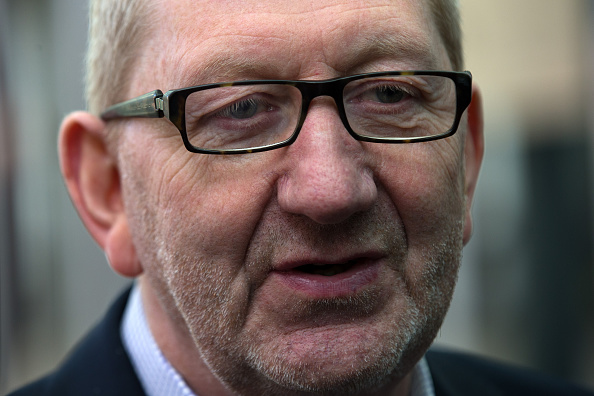Len McCluskey has seen off a challenge to be elected to a third term at the helm of Unite.
And what a seeing off it was. When the votes starting to come in, and reportedly showed the top two contenders neck-and-neck, McCluskey’s rival was promptly suspended. Gerard Coyne was stripped of his duties as West Midlands regional secretary – although it’s not clear what he’s supposed to have done wrong or who his accusers are.
Coyne has been a thorn in the side of the McCluskey hierarchy for some time. The Guardian points out that he was given a written warning in 2016. His offence? Speaking at an event hosted by moderate Labour MPs Chuka Umunna and Tristram Hunt.
His challenge certainly was not welcomed. Coyne’s campaign was an explicit pitch for moderate, pragmatic trade unionism – against the far-left politicking which saw Unite back Jeremy Corbyn for Labour leader. As I wrote last week on Coffee House, for Coyne, the prize was not only knocking off a big beast of the far-left but making his union fit for purpose. ‘The world of work is changing fast,’ he said. ‘We are seeing the rise of insecure, poorly paid employment and a technological revolution that is transforming every workplace. Unite needs to become much better at recruiting and organising in the modern economy.’
Workers of the world of Unite, you have nothing to lose but such chains. Worse, these dread proposals were actually a plot by the hated moderates in Labour. As a McCluskey supporter has told the FT’s Jim Pickard: ‘There will be a lot of Blairites crying into their Peroni and Chablis tonight.’ As cocktails go that is only slightly more unpalatable than the combination of Corbyn and McCluskey running the Labour Party but it is revealing of the mindset at work. Even as the polls show Unite’s handpicked Labour leader will soon take the party down to an historic defeat, still the ideologues obsess over the long-vanquished bogeyman, Tony Blair.
McCluskey’s first place — it scarcely amounts to a victory — was secured by taking 5,523 more ballots than Coyne on a turnout of just 12pc. That doesn’t say much for democratic engagement within Unite but McCluskey’s 59,067 votes will keep him in situ as the most powerful man in the Labour Party. Coyne had hoped to change not just the face of Unite but the way it does business. He said he didn’t want to be a Labour Party power-broker, he wanted to fight for the pay and conditions of his members.
With the general election six weeks away, it no longer matters but Coyne was the anti-Corbyn candidate, as much as he rejected that label. By unseating McCluskey he would have deprived the Labour leader of one of his institutional crutches. In the longer term, this could have strengthened the hand of moderates in the PLP. The history of the Labour Party is littered with ifs, buts, and maybes.
Unite members – or the 12pc who took part – have made their choice. And so has Labour. The country will have its say on June 8. But the treatment of Gerard Coyne will cast a long shadow. His suspension does not look like the action of a confident, modern labour movement, at ease with internal democracy and member control.
It recalls Bertolt Brecht’s poem, The Solution, written in response to Stalinist denunciations of the disloyal workers of East Germany. The verse ends:
Would it not be easier In that case for the government To dissolve the people And elect another?
Only two places in the world suspend the opposition during elections: Banana republics and Unite the Union. This episode will do nothing to improve the reputation of trade unionism amongst the British public. But who cares what they think? They probably drink Peroni and Chablis too.







Comments